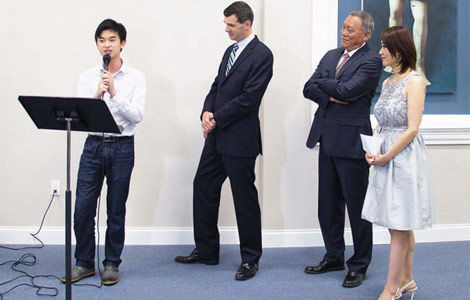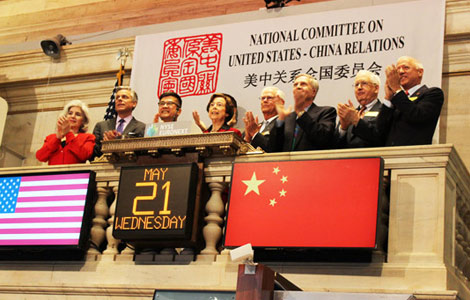Action plan drawn up to counter cyberthreats
Updated: 2014-05-29 01:46
By CAO YIN in Shantou, Guangdong, and PU ZHENDONG in Beijing (China Daily)
|
||||||||
The measures include dealing with online attacks launched from abroad
Chinese network security and technology companies have taken measures to tackle increasingly serious online threats, including attacks from overseas.
More sophisticated online threats from abroad have led to enterprises looking at ways to tackle the problem.
For example, greater importance has been placed on cybersecurity in recent years by Qihoo 360, a Chinese network security company with more than 5,000 employees.
Since 2010, the number of employees responsible for providing security services and maintenance for other users in the company has increased by at least five times, vice-president Tan Xiaosheng told China Daily.
Tan made the comment during a national cybersecurity conference in Shantou, Guangdong province.
The number of employees responsible for the company's own security had risen to 40, compared with just five in 2010, Tan said.
"We have improved our security technology products and services with the aim of effectively coping with cyberattacks, no matter where they come from," he said.
The United States has become the source of the most attacks on Chinese users. From March 19 to May 18, 2,077 servers in the US controlled 1.18 million computers in China via Trojans or botnets, while 2,016 IP addresses launched 57,000 backdoor attacks on 1,754 Chinese websites.
The US has been accused of hacking and eavesdropping on Chinese leaders, government agencies and companies in recent years.
The figures follow an announcement by the US Department of Commerce last week that five Chinese military personnel were being charged with hacking computers of US companies.
Sun Jianguo, deputy chief of general staff of the People's Liberation Army, said on Tuesday in Shanghai that the US was the biggest cybersecurity attacker and it should be sued by most countries.
"It is ridiculous that the US says espionage on political and military intelligence is a normal practice but that collecting business intelligence is a crime. Isn't political and military secrecy more essential to a country's existence and security?"
Ruan Zongze, vice-president of the China Institute of International Studies, said Washington had stirred new "provocations" in cyberspace targeting China as it attempted to disguise its own eavesdropping scandal revealed by former National Security Agency contractor Edward Snowden, and divert public anger to China as a scapegoat.
"Cybersecurity calls for concerted global efforts to frame regulations, but the US has been running in the opposite direction," Ruan said.
Yu Haibo, president of TOPSEC, another company providing information security products and services in China, said he had doubled the number of researchers and engineers devoted to cybersecurity in the past year.
The company now has about 500 employees engaged in boosting security technology and promoting related products, of which more than 100 are members of a think tank.
He welcomed cybersecurity being elevated on a national level and said enterprises like his played an important role in preventing online attacks, especially from abroad.
Li Yuxiao, director of the Institute of Internet Governance and Law under Beijing University of Posts and Telecommunications, said the participation of companies was effective in preventing cybersecurity breaches.
He suggested that the government strengthen Internet security cooperation with other countries.
Contact the writers at caoyin@chinadaily.com.cn and puzhendong@chinadaily.com.cn
Most Viewed
Editor's Picks

|

|

|

|

|

|
Today's Top News
Action plan drawn up to counter cyberthreats
Opinion: US-Japan alliance and China
Opinion: Cooperation to overcome rift
Google goes completely automatic with new car
US commerce delegation visits Cuba
US to leave 9,800 troops in Afghanistan
Chinese Consulate condemns UCSB rampage
Tensions rise as fishing vessel sinks
US Weekly

|

|















